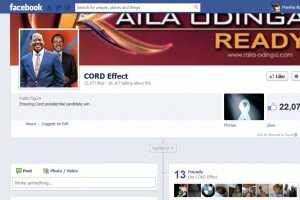AFP
The study claimed to have been able to establish characteristics such as sexual orientation, ethnicity, religious and political views, personality traits, intelligence, happiness, use of addictive substances, parental separation, age and gender from what people liked online.
“Facebook profile information… psychometric test scores, and survey information,” were used to analyse over 58,000 US Facebook users, said the study.
“It’s very easy to click the ‘like’ button, it’s seductive,” David Stillwell, one of the co-authors of the study, told AFP. “But you don’t realise that years later all those likes are building up against you.”
The study said: “Individual traits and attributes can be predicted to a high degree of accuracy based on records of users’ Likes.”
The easiest personal information to establish was ethnicity and sexual orientation.
“African Americans and Caucasian Americans were correctly classified in 95 percent of cases, and males and females were correctly classified in 93 percent of cases,” the researchers said.
“Sexual orientation was easier to distinguish among males (88 per cent) than females (75 per cent), which may suggest a wider behavioral divide (as observed from online behavior) between hetero- and homosexual males.”
The researchers said various organisations could easily obtain information the user had not intended to be publicised through analysis of “likes”.
“Commercial companies, governmental institutions, or even one’s Facebook friends could use software to infer attributes such as intelligence, sexual orientation, or political views that an individual may not have intended to share,” they said. “One can imagine situations in which such predictions, even if incorrect, could pose a threat to an individual’s well-being, freedom, or even life.”






















































